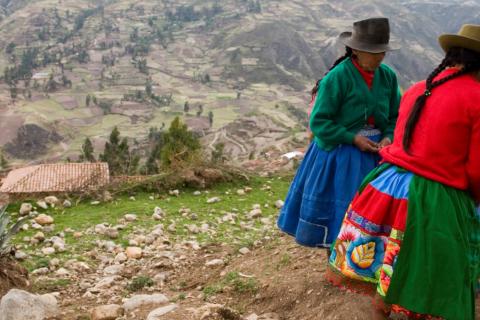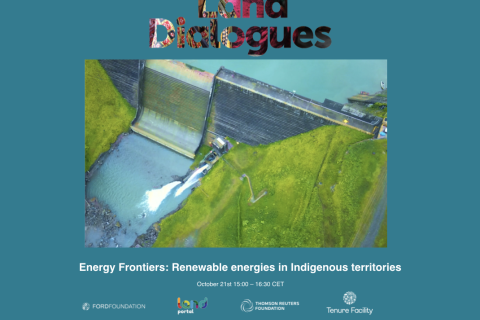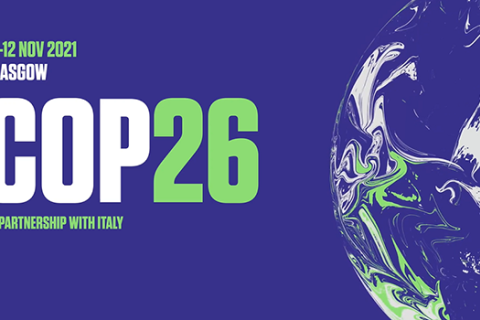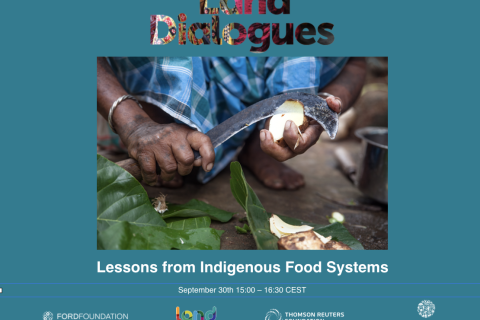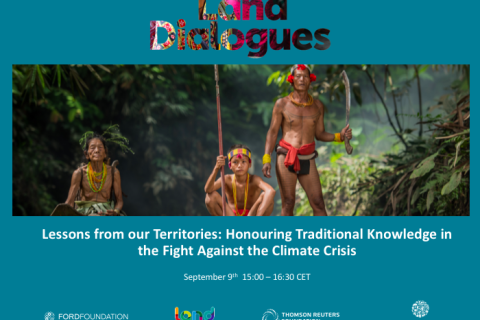
Topics and Regions
Details
Location
Contributions
Displaying 151 - 160 of 4062021 United Nations Climate Change Conference: COP26
COP 26 side event: Securing Land and Territorial Rights of Indigenous Peoples and Local Communities for Climate Change Adaptation and Resilience
Wednesday Novemeber 10th @ 9.00H - 10.30H GMT
Securing land and territorial rights that are people centred, gender just and age sensitive, provide an essential basis for indigenous peoples and local communities to contribute with nature-based solutions to
COP 26 side event: Time to Act Now Women's Land Rights as a Critical Pillar for Climate Action
Tuesday, November 9TH @ 9H - 10.30H GMT
Indigenous Peoples Must be Central to Tackling the Climate Crisis
As leaders from around the globe gather for the 2021 United Nations Climate Change Conference (COP 26), it is vital that they recognize two important facts. The first is that we cannot reach climate goals without protecting and sustainably managing the carbon-absorbing forests that cover a third of the Earth’s land surface.
Indigenous leaders to push for land tenure rights as climate solution at COP26
- Indigenous leaders from around the world will join government officials, scientists, activists, and NGO representatives at the U.N.
Energy Frontiers: Renewable energies in Indigenous territories
Although renewable energy has not been inherently positive for Indigenous Peoples, there is a growing recognition among private and government actors that attaining the highest possible standards in respect of Indigenous Peoples’ rights is simply a matter of sound business principles and good practice.
UN Climate Change Conference COP26
The 26th session of the Conference of the Parties (COP 26) to the UNFCCC was originally scheduled to take place from 9-19 November 2020, in Glasgow, UK. On 28 May 2020, the COP Bureau decided that it would take place from 1-12 November 2021, in Glasgow, UK.
Lessons from Indigenous Food Systems
More than 476 million Indigenous Peoples, living in more than 90 countries across the world in seven socio-cultural regions, have developed unique territorial management practices that manage to generate food whilst preserving biodiversity. In a world where food security is becoming increasingly unstable , the way Indigenous Peoples grow and consume food holds answers to the world’s b
Lessons From our Territories : Honouring Traditional Knowledge in the Fight Against the Climate Crisis
Local and indigenous knowledge refers to the understandings, skills and philosophies developed by societies with long histories of interaction with their natural surroundings. For rural and Indigenous Peoples, local knowledge informs decision-making about fundamental aspects of day-to-day life.
Indigenous Peoples protect their land, and by extension, the rest of us
The Sarayaku people of eastern Ecuador have declared their traditional Amazonian home as Kawsak Sacha — a living forest with rights.
On Mindanao, in the Philippines, the Manobo people have created a local and regional governance structure for their lands, including Bagani, or warriors, to police the area against logging and poaching.





